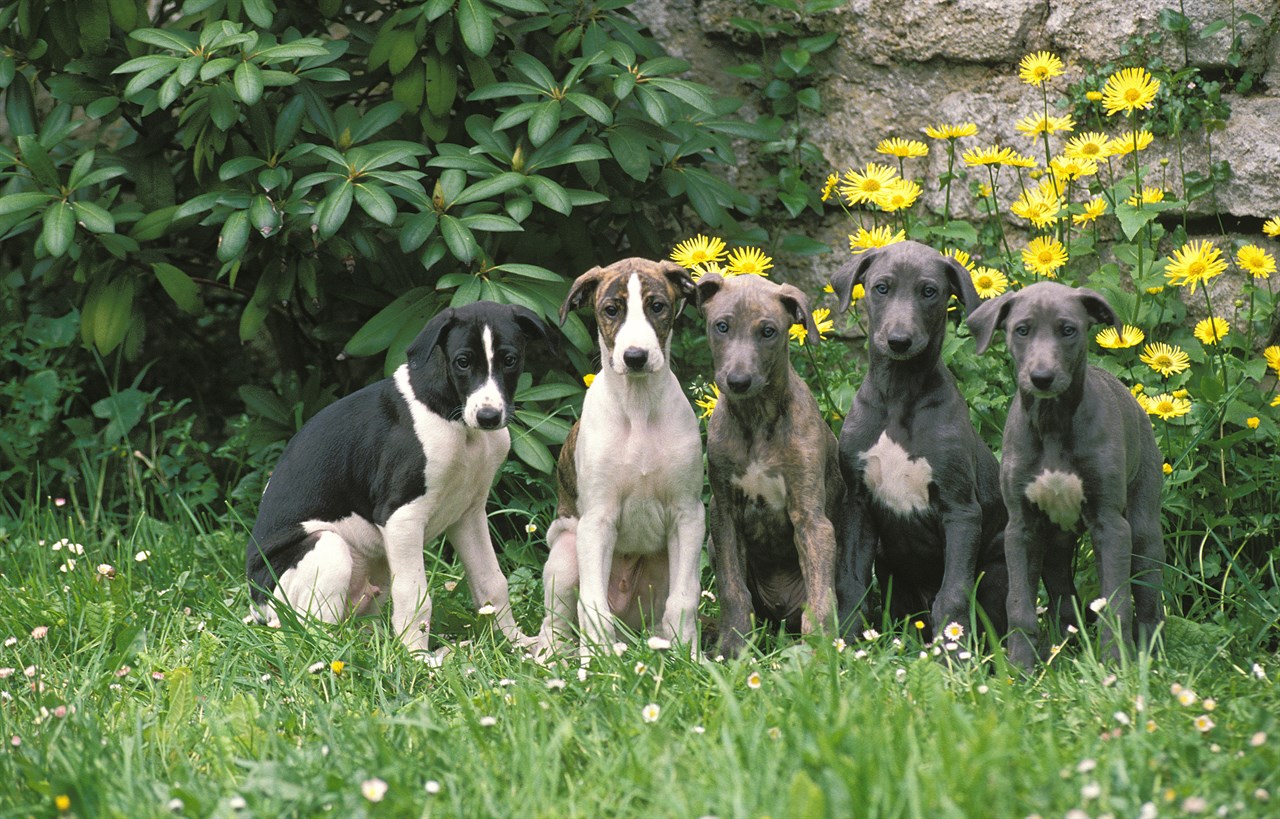Feeding habits and Nutritional requirements for Greyhound

Feeding a Greyhound properly is essential for their overall health and well-being. Understanding their feeding habits and nutritional requirements will help you provide them with the best diet.
Caloric Needs
Greyhounds are generally a lean and athletic breed, and their caloric needs can vary based on factors such as age, activity level, and individual metabolism. Typically, adult Greyhounds require about 1,300 to 1,700 calories per day, but this can vary. Puppies and younger Greyhounds may require more calories for growth and energy.
High-Quality Dog Food
It's essential to choose a high-quality commercial dog food that meets the nutritional needs of your Greyhound. Look for dog food labelled as "complete and balanced" by reputable brands. The choice between dry kibble, wet food, or a combination can depend on your dog's preferences and any specific dietary needs.
Protein
Greyhounds benefit from a diet that contains a moderate to high amount of protein, ideally derived from animal sources. Protein supports their lean muscle mass and overall health. Look for dog food with a protein content of at least 18-22%.
Moderate Fat
While Greyhounds are lean dogs, they still require a moderate amount of healthy fats in their diet. Fats provide energy and support skin and coat health. Aim for dog food with a fat content of around 8-15%. Greyhounds do not require a high-carbohydrate diet. Look for dog food with moderate levels of carbohydrates, primarily from sources like grains, vegetables, and fruits. Avoid excessive filler ingredients.
Feeding Schedule
Establish a regular feeding schedule with set meal times. Many Greyhound owners find that feeding twice a day, once in the morning and once in the evening, works well. Be consistent with portion sizes to prevent overfeeding, as Greyhounds can be prone to weight gain.
Fresh Water
Always provide your Greyhound with access to fresh, clean water. Staying hydrated is crucial for their health, especially after exercise or during warmer weather. Avoid feeding your Greyhound table scraps or human foods that can be harmful to dogs. Some common human foods, such as chocolate, grapes, onions, and certain spices, can be toxic to dogs.
Monitor Weight
Regularly monitor your Greyhound's weight to ensure they stay within a healthy range. A lean body condition is ideal, as overweight Greyhounds are more susceptible to health issues such as joint problems.
Consult a Vet
Consult with your veterinarian to determine the most appropriate diet for your Greyhound's age, activity level, and specific health needs. They can provide guidance on portion sizes and dietary adjustments.
In summary, providing your Greyhound with a balanced and nutritious diet tailored to their individual needs is essential for their health and longevity. Be mindful of portion sizes, choose high-quality dog food, and consult your veterinarian for dietary guidance. Proper nutrition plays a significant role in keeping your Greyhound happy and healthy throughout their life.
Greyhound puppies for sale
- Find Greyhound puppies for sale in ACT
- Find Greyhound puppies for sale in NSW
- Find Greyhound puppies for sale in NT
- Find Greyhound puppies for sale in QLD
- Find Greyhound puppies for sale in SA
- Find Greyhound puppies for sale in TAS
- Find Greyhound puppies for sale in VIC
- Find Greyhound puppies for sale in WA